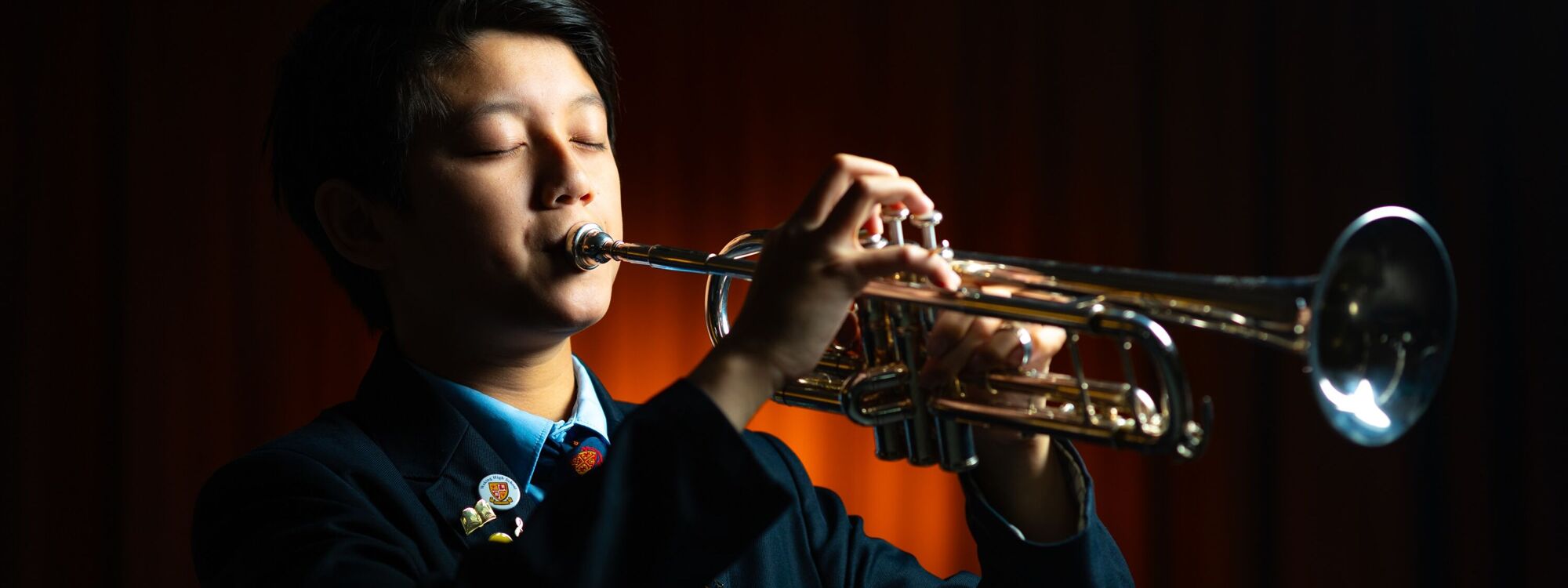
Music
Back"Music has a power of forming the character and should therefore be introduced into the education of the young."
Aristotle
Staff members
Mr N Turner (Head of Department)
Mr A Lawton
Subject Definition
Music education touches on all learning domains, including the development of skills, the acquisition of knowledge and the learner's willingness to receive, internalise, and share what is learned, including music appreciation and sensitivity.
Through the teaching of performance, composition and listening and appraising (including music history and theory), Music education gives young people the opportunity to find a richer life through music, to guide students into a better understanding of, and greater love for music.
Subject Purpose
-Music stimulates brain development in children.
-Music supports the development of confidence in students.
-Music is a way to connect with other people (social skills).
-Music integrates many different subjects (cross-curricular).
-Music teaches discipline.
-Music can relieve stress and supports healthy well-being.
We live in a modern world where young people are exposed to many forms of arts and media to the extent that they often no longer develop a passion for any of them. By giving students the opportunity to focus and learn in detail about music, we hope to ignite this passion in our young people, with through the acquisition of practical skills or by giving them a variety of listening opportunities to engage with.
As a school, we have established a set of core values that we instil in our students at all times. We believe that if are able to demonstrate engagement, inclusion, kindness, resilience, excellence and personal responsibility at all times, they will move on in their lives to achieve great things. Music lessons promote all of these core values in the variety of activities that students engage with.
During music lessons, students develop practical skills via performance and composition tasks. Their knowledge of music is developed by them learning about and listening to music from different genres, periods of history and cultures. Above all else, students learn that music is for everyone, whether they are experienced musicians or discovering an area of the subject for the first time. “Without music, life would be a mistake” (Friedrich Nietzsche).
KS3 overview
During KS3 Music lessons, students primarily develop their music performance skills. This is done in lessons mainly with keyboard and vocal work, although other instrumental opportunities are available in extra-curricular activities and peripatetic music lessons. Students also learn how to structure and compose music through a number of practical tasks have become progressively more demanding. This is of particular note in Year 9 lessons where students are introduced to music technology for the first time and are shown how they can record their musical ideas onto computers by using specialist software. Students are also exposed to different types of music through listening and appraising activities, and this also includes work related to periods of music history and how music can be notated.
KS4 overview
Qualification Information
Course title: Level 1/Level 2 GCSE (9–1) in Music
Exam board: Exexcel
Pearson Edexcel GCSE Music
During GCSE Music lessons, students learn about 8 set pieces of music, as identified by the exam syllabus. They learn about the historical contexts in which the pieces were created and are shown the key features of each piece. They then compare these set pieces with other pieces that are related to them but students will not be familiar with. This is because, in the final listening and appraising exam at the end of Year 11, students will have to answer short questions about each set work but will also have several more challenging questions about unfamiliar music that they will also need to complete.
During some Year 10 Music lessons, students use the computer skills that they acquired in Year 9 to complete one composition which can be in any style of their choosing. They also complete a second composition in Year 11 where students are given four briefs set by the exam board and they must choose one of these to work with in composition lessons. GCSE Music students usually practice performances as homework or with their instrumental teachers outside of school. However, the final two performances that students choose to make a recording of are usually completed in dedicated practical lessons towards the end of Year 11.
| Subject Documents |
|---|
| KS3 Overview Music |
